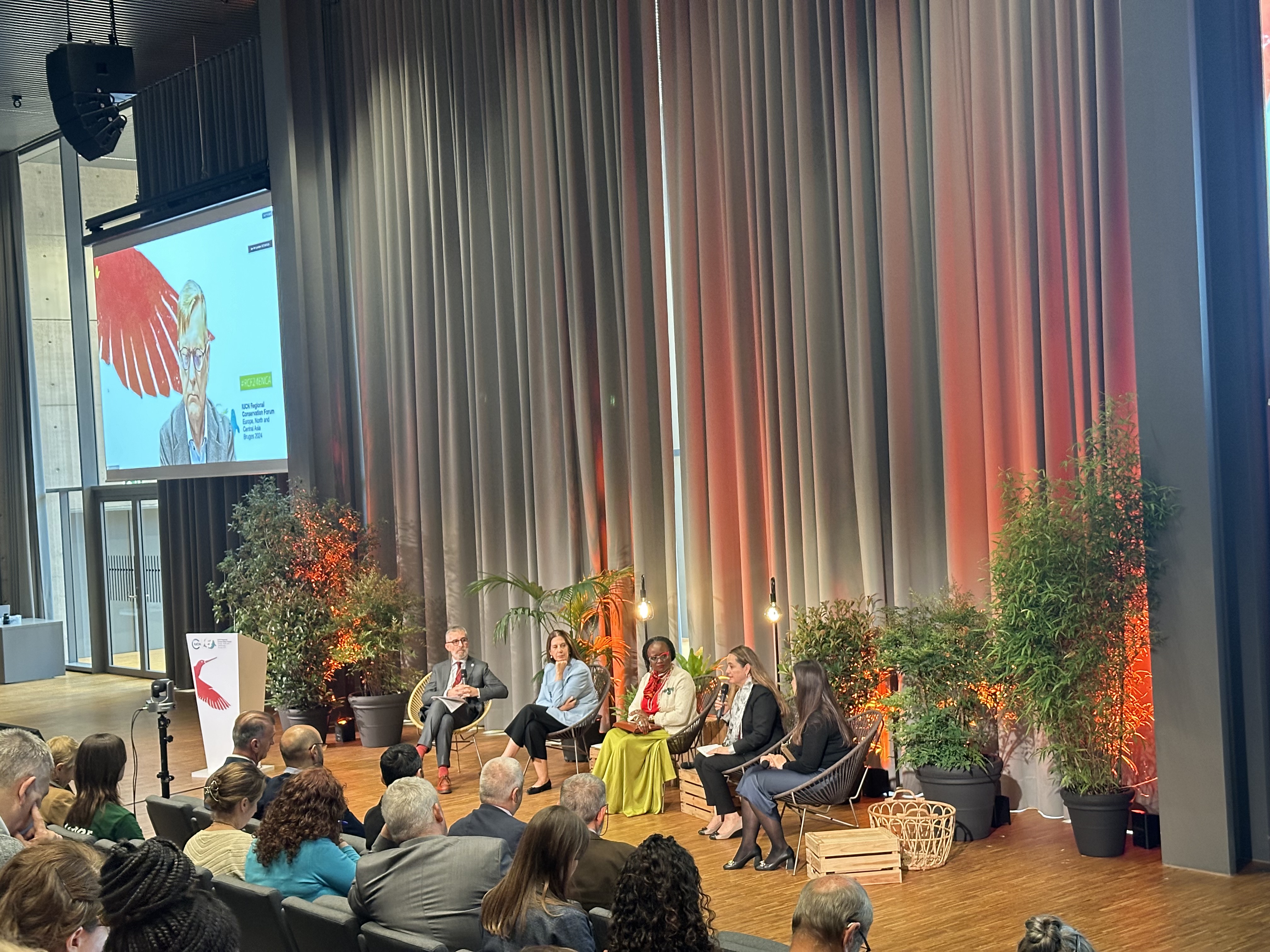
Published on 30/09/2024
The IUCN Regional Conservation Forum (RCF) for Europe, North, and Central Asia is currently unfolding in the city of Bruges, Belgium, from 30 September to 3 October 2024. Set in a UNESCO World Heritage site, this gathering is a key moment for conservation leaders to shape the direction of environmental efforts as the IUCN gears up for the 2025 World Conservation Congress.
As environmental challenges continue to grow, the forum is focusing on how technology can play a pivotal role in finding solutions. One of the most pressing topics discussed by experts has been the impact of artificial intelligence (AI) on conservation. Ate, a leading figure from Helsinki, shared his insights into how AI can be a game-changer in solving human-caused environmental problems. He highlighted how AI is already helping calculate biodiversity footprints, monitor ecosystem health, and drive circular economies by connecting waste to new resources. The conversation didn’t stop at AI.
Earth observation technologies were also discussed as essential tools for monitoring global environmental changes, from tracking hurricanes to observing climate shifts. These technologies are a reminder of how collective human effort can help protect the planet. The panel wrapped up by reminding everyone that, while the future is uncertain, we already have many of the tools we need to protect it. The key now is to take action, using both short-term solutions and a long-term vision to safeguard the planet.